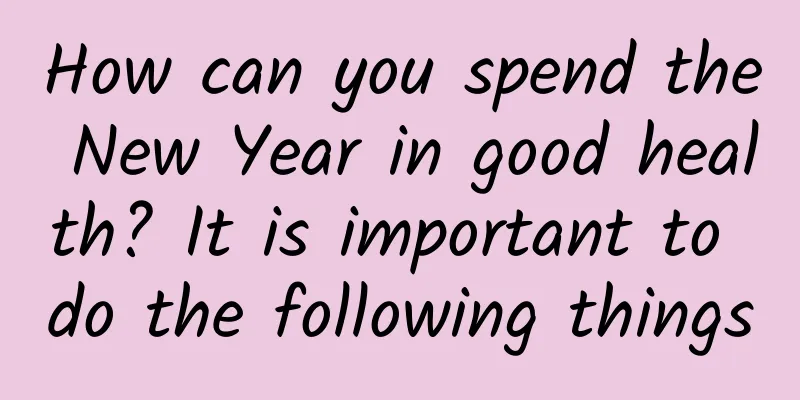Why do people always believe in news that is so fake that it is ridiculous?

|
Eye-catching fake news spreads rapidly by taking advantage of people’s instinct to share. Cognitive biases lead readers to believe in positions rather than facts. Sometimes, people only insist on the gesture of “sticking to principles” rather than the “principles” themselves. Image | Public domain Author | Tang Yicheng, China Science Popularization Mental Health Promotion Center Editor | Long Hao Gao Peiwen From the past to the present, the issue of "fake news" has always attracted much attention. From the extensive media coverage of the issue to the government's establishment of a special investigation committee, it has repeatedly demonstrated its determination to eliminate fake news. But in fact, fake news has been repeatedly banned. Fake news spreads very quickly once it is released. But why can fake news with so many mistakes spread so quickly? Why do people always like to read fake news? This has to start with the laws of human psychology. Fake news in the true sense refers to "false, sensational information spread in the form of news reports", and its content is often inflammatory. It spreads virally through people's sharing behavior, causing great social harm. In fact, sharing news is a human instinct. In an information society, people connect with others and gain a sense of identity by exchanging valuable information. Without sharing, social networks do not exist, because we form a whole through the continuous exchange of information. For some people, sharing is an altruistic behavior. Forwarding news to people in need will make them feel a sense of dedication and a feeling that "I belong to a certain group." Some people are "showy sharers" who use news as social currency to establish an impression that they are well-informed. Sharing news is human nature | unsplash For example, imagine a fictional woman named "Linda". Linda is 31 years old, single, straightforward, smart, and majored in philosophy. When she was a student, she paid special attention to gender discrimination and social justice issues and actively participated in anti-nuclear demonstrations. By extension, for any statements A, B, and C, the probability that A is true is always greater than the probability that A, B, and C are all true, because if A, B, and C are all true, A must be true, but not vice versa. The more details, the more "credible" the news, but the less likely it is to happen | unsplash The reason for this phenomenon is "confirmation bias", which means that we will look for and interpret information in a way that supports our own views. In this case, we may block certain information and only believe information that supports our own views, even if this information is false. A few days ago, there was news that Trump colluded with Russia to manipulate the US election. There are many theories, but there is no solid evidence. Here is the manifestation of "confirmation bias": Trump and Putin "intimate meeting" | Kremlin.ru In fact, we have always seen the world through tinted glasses, and everyone sees the world distorted. Some studies have further pointed out that when people are affected by confirmation bias and believe in fake news, they may even distort their own memories. In other words, people often turn their lies into part of their memories. The researchers randomly selected half of the questions and asked the subjects to lie. 45 minutes later, the respondents answered the same questionnaire. This time, the researchers asked them to answer all questions truthfully, but the results showed that "some lies change memory, creating new memories for things that did not actually happen." Of course, compared with young people, the elderly are more easily misled by false information. In the experiment, the researchers showed the subjects two photos and asked them to choose which photo was better looking and more attractive. After the subjects made their choice, the researchers put the two photos away and fiddled with them like shuffling cards. Then they took out one of the photos and put it in front of the subjects and asked, "Can you explain to me why you think this person is more attractive?" The "selection blindness" effect has been repeatedly verified several times. For example, a 2013 study asked subjects to choose several funds for investment, and then immediately displayed these funds on the screen, saying that these are your choices and can you explain why you chose them? More than 60% of the subjects did not notice that a fund on the screen had been changed. Choosing blindness allows people to ignore their own position and defend their own "choices". | pixabay The phenomenon of "selective blindness" reminds us that when faced with some opinions on public affairs, if they are not related to our own interests, our positions are actually wavering, and in many cases, we don't even remember our positions. People only insist on the posture of "sticking to principles" rather than the content of the "principles" themselves. When faced with a flood of news and information, what people care about most is often not the truth or falsity of the news, or even whether the news conforms to their positions, but whether they can win the debate. False news and fickle positions have made the Internet a disaster area for cognitive biases. Who is forwarding fake news? In the era of "everyone can speak up", the Internet has become a hotbed for fake news. On the one hand, the Internet lacks "gatekeepers" and information is not reviewed by editors, resulting in a large amount of information mixed together, making it difficult to distinguish between true and false; on the other hand, the rise of self-media has made news production easier and the speed of news dissemination has soared, which has led to the proliferation of fake news. So who are the people who are forwarding fake news, and what do these people have in common? Before and after the 2016 US election, researchers from New York University and Princeton University tracked 1,300 people and found that age may be the best indicator for judging people who share fake news. Among them, 11% of users over 65 shared fake news links, while only 3% of users aged 18 to 29 shared them. In terms of the number of fake news shared, people over 65 are nearly 7 times that of people aged 18 to 29. It can be seen that the elderly are the main force in spreading fake news. This is partly because the elderly lack the digital media literacy necessary to judge the authenticity of online news. More importantly, from the perspective of cognitive and social psychology, aging has a negative impact on cognition and memory. The Internet has become a hotbed of fake news, and the elderly are the hardest hit | Pixabay How to defend against fake news To resist the influence of fake news, learning to think about the rationality of numbers is the first step. Finally, it is important to emphasize the "confirmation bias" mentioned repeatedly above. "Confirmation bias" will make people pick data and information that are beneficial to them. For example, you believe that taking too much vitamin D will cause physical discomfort, so when evidence supporting this conclusion appears, you will agree without hesitation, ignoring whether the information itself is true. Therefore, when you get a point of view, you should examine the information on both sides of this point of view at the same time to avoid drawing biased conclusions. Similar to "confirmation bias" is a cognitive bias called "motivated reasoning", which means that when we are strongly motivated to draw a specific conclusion, the emotional arousal we experience will interfere with our reasoning method, causing us to lose our judgment of the news. This ridiculous news topic, because of AI's understanding of Trump's personality and speech, may really deceive many people - especially those who have a negative impression of Trump. Of course this is just a joke, but when you think that even AI can write fake news by itself, next time you forward a piece of news, will you think about it for 1 to 2 seconds longer? -END- The article was published by the official account of "Ten Points Science" (ID: Science_10). You are welcome to forward it to your friends circle. Please indicate the source when reprinting. |
>>: I'm under a lot of pressure! Should I see a psychologist?
Recommend
Will having sex two days before menstruation cause delayed menstruation? Experts tell you the answer
You can have sexual intercourse two days before m...
Girls abdominal pain
If a girl has persistent abdominal pain, it is no...
I feel my facial features have become uglier after pregnancy
It is said that being a mother is a great thing, ...
How many days after menstruation is delayed can you take a urine test
In daily life, many female friends regard delayed...
What are the white spots on nipples?
Breasts are something women are proud of because ...
Why do I have yellow discharge more than 40 days after a caesarean section?
As cesarean section technology becomes more and m...
What causes uterine prolapse?
Uterine prolapse is a common uterine disease. The...
Can you eat barbecue while breastfeeding?
Grilled skewers are a very delicious way of cooki...
What novel is Joy of Life based on? Where can I read the original novel of Joy of Life on Baidu Cloud?
Starring Li Qin and Zhang Ruoyun, Joy of Life has...
Can taking baking soda tablets help you have a boy?
In fact, China has always valued boys over girls....
Six tips for getting pregnant quickly
People nowadays often experience symptoms of infe...
Why is my period delayed for a week?
Some women have physical problems, especially som...
Is liquid contraceptive gel safe?
There are many ways of contraception clinically, ...
Can I eat donkey-hide gelatin if I have breast hyperplasia?
Women are very prone to some gynecological diseas...
Black menstruation must be treated
Women's menstruation is an important sign of ...









